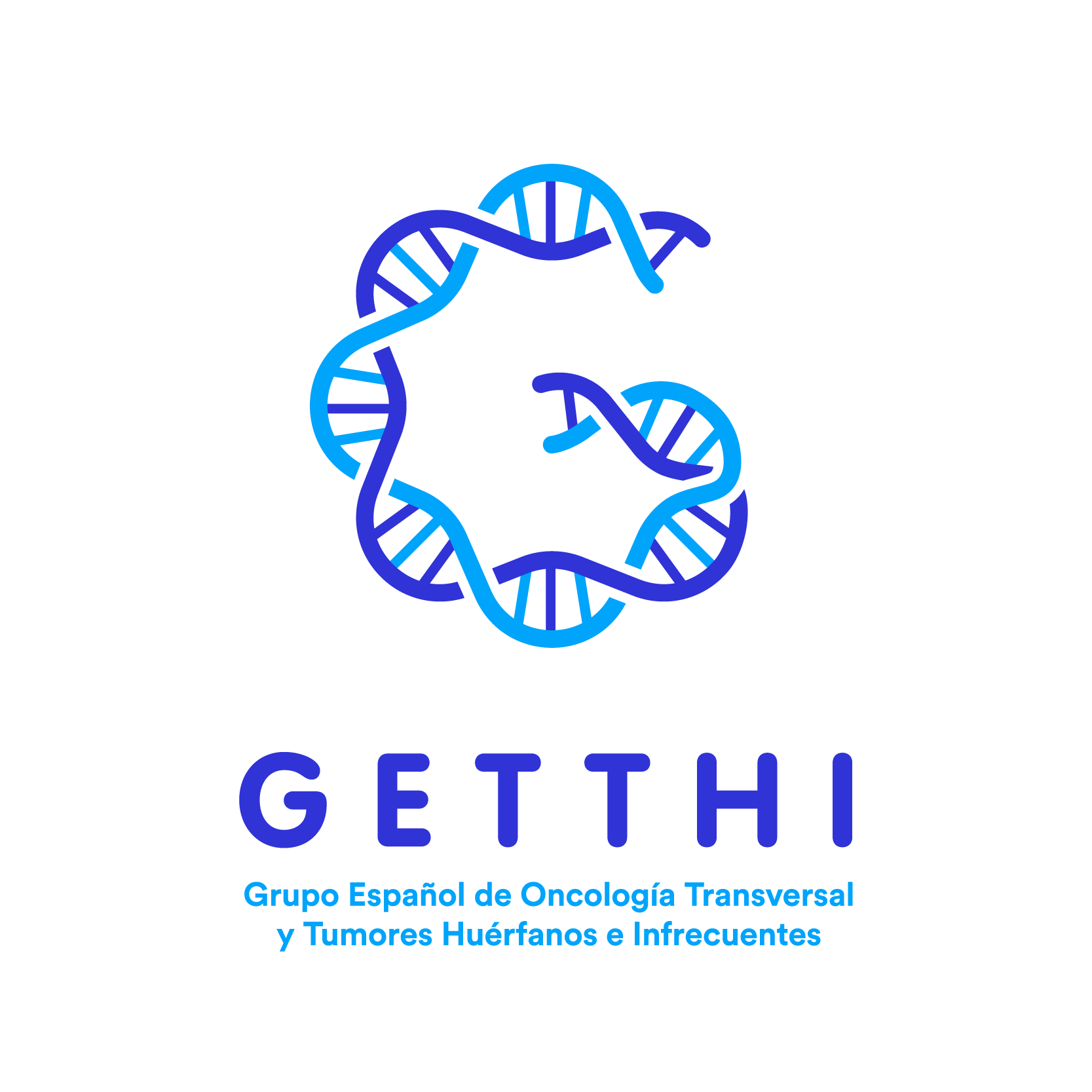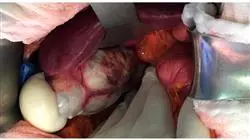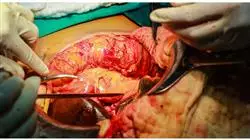University certificate
Scientific endorser

The world's largest faculty of medicine”
Introduction to the Program
Advances in research are increasingly allowing these cancers to be treated successfully, achieving patient survival. Increase your skills in this field with TECH and achieve patient improvement"

The importance of researching cancers of unknown primary and rare cancers lies, on the one hand, in their paradoxically high frequency, taking the data as a whole. One in five tumors diagnosed every day is a rare tumor, which represents an important figure of 650,000 cases per year in the European Union and an incidence similar to that of colorectal cancer.
On the other hand, the mortality rate of these tumors is higher than that of the most common tumors, with a 5-year survival rate of 48% compared to 63% for the overall number of neoplasms. This is due, above all, to the limited experience of professionals due to their rarity, as well as to the difficulty of receiving effective specific treatments, since most of them do not have approved medication for this purpose, which is why they are also known as orphan tumors.
This program has been designed from the experience of leading cooperative group members in orphan cancer and Cancer of Unknown Primary. They are leading experts in rare cancers, but also in reference pathology groups in each case; internationally renowned professionals.
In this program, the experts, all of them leaders in each knowledge field, will develop aspects related to the context of this spectrum of pathologies, presenting their clinical and molecular vision, showing their diagnostic and therapeutic approaches and explaining complementary aspects such as their research and institutional environment or the global reality of the patients who suffer from these diseases.
Furthermore, students will be able to complete the program at their own pace, without being subject to fixed schedules or the commuting involved in classroom teaching, so they will be able to combine it with their other daily obligations.
You will complete your knowledge of pediatric cancer in a way you have never experienced before. You will learn the criteria to consider a tumor as a tumor”
This Professional master’s degree in Cancer of Unknown Primary contains the most complete and up-to-date scientific program on the market. The most important features include:
- The development of case studies presented by oncology experts
- The graphic, schematic, and practical contents with which they are created, provide scientific and practical information on the disciplines that are essential for professional practice
- Latest advances on the treatment of Cancer of Unknown Primary
- Practical exercises where the self-assessment process can be carried out to improve learning
- Special emphasis on innovative methodologies in the diagnosis and treatment of Cancer of Unknown Primary
- Theoretical lessons, questions to the expert, debate forums on controversial topics, and individual reflection assignments
- Content that is accessible from any fixed or portable device with an Internet connection
You will acquire the skills to use molecular biology tools for a successful agnostic approach to Cancer of Unknown Primary”
The teaching staff includes professionals from the oncology sector, who contribute their experience to this program, as well as renowned specialists from leading societies and prestigious universities.
The multimedia content, developed with the latest educational technology, will provide the professional with situated and contextual learning, i.e., a simulated environment that will provide immersive education programmed to learn in real situations.
This program is designed around Problem-Based Learning, whereby the specialist must try to solve the different professional practice situations that arise throughout the program. For this purpose, the professional will be assisted by an innovative interactive video system created by renowned and experienced experts.
You will delve into the role of lung cancer as a paradigm of personalized medicine, with your contribution being a key to its treatment in the future"

In this program, you will learn about rare hereditary syndromes from a clinical and molecular perspective"
Why study at TECH?
TECH is the world’s largest online university. With an impressive catalog of more than 14,000 university programs available in 11 languages, it is positioned as a leader in employability, with a 99% job placement rate. In addition, it relies on an enormous faculty of more than 6,000 professors of the highest international renown.

Study at the world's largest online university and guarantee your professional success. The future starts at TECH”
The world’s best online university according to FORBES
The prestigious Forbes magazine, specialized in business and finance, has highlighted TECH as “the world's best online university” This is what they have recently stated in an article in their digital edition in which they echo the success story of this institution, “thanks to the academic offer it provides, the selection of its teaching staff, and an innovative learning method aimed at educating the professionals of the future”
A revolutionary study method, a cutting-edge faculty and a practical focus: the key to TECH's success.
The most complete study plans on the university scene
TECH offers the most complete study plans on the university scene, with syllabuses that cover fundamental concepts and, at the same time, the main scientific advances in their specific scientific areas. In addition, these programs are continuously being updated to guarantee students the academic vanguard and the most in-demand professional skills. In this way, the university's qualifications provide its graduates with a significant advantage to propel their careers to success.
TECH offers the most comprehensive and intensive study plans on the current university scene.
A world-class teaching staff
TECH's teaching staff is made up of more than 6,000 professors with the highest international recognition. Professors, researchers and top executives of multinational companies, including Isaiah Covington, performance coach of the Boston Celtics; Magda Romanska, principal investigator at Harvard MetaLAB; Ignacio Wistumba, chairman of the department of translational molecular pathology at MD Anderson Cancer Center; and D.W. Pine, creative director of TIME magazine, among others.
Internationally renowned experts, specialized in different branches of Health, Technology, Communication and Business, form part of the TECH faculty.
A unique learning method
TECH is the first university to use Relearning in all its programs. It is the best online learning methodology, accredited with international teaching quality certifications, provided by prestigious educational agencies. In addition, this disruptive educational model is complemented with the “Case Method”, thereby setting up a unique online teaching strategy. Innovative teaching resources are also implemented, including detailed videos, infographics and interactive summaries.
TECH combines Relearning and the Case Method in all its university programs to guarantee excellent theoretical and practical learning, studying whenever and wherever you want.
The world's largest online university
TECH is the world’s largest online university. We are the largest educational institution, with the best and widest online educational catalog, one hundred percent online and covering the vast majority of areas of knowledge. We offer a large selection of our own degrees and accredited online undergraduate and postgraduate degrees. In total, more than 14,000 university degrees, in eleven different languages, make us the largest educational largest in the world.
TECH has the world's most extensive catalog of academic and official programs, available in more than 11 languages.
Google Premier Partner
The American technology giant has awarded TECH the Google Google Premier Partner badge. This award, which is only available to 3% of the world's companies, highlights the efficient, flexible and tailored experience that this university provides to students. The recognition as a Google Premier Partner not only accredits the maximum rigor, performance and investment in TECH's digital infrastructures, but also places this university as one of the world's leading technology companies.
Google has positioned TECH in the top 3% of the world's most important technology companies by awarding it its Google Premier Partner badge.
The official online university of the NBA
TECH is the official online university of the NBA. Thanks to our agreement with the biggest league in basketball, we offer our students exclusive university programs, as well as a wide variety of educational resources focused on the business of the league and other areas of the sports industry. Each program is made up of a uniquely designed syllabus and features exceptional guest hosts: professionals with a distinguished sports background who will offer their expertise on the most relevant topics.
TECH has been selected by the NBA, the world's top basketball league, as its official online university.
The top-rated university by its students
Students have positioned TECH as the world's top-rated university on the main review websites, with a highest rating of 4.9 out of 5, obtained from more than 1,000 reviews. These results consolidate TECH as the benchmark university institution at an international level, reflecting the excellence and positive impact of its educational model.” reflecting the excellence and positive impact of its educational model.”
TECH is the world’s top-rated university by its students.
Leaders in employability
TECH has managed to become the leading university in employability. 99% of its students obtain jobs in the academic field they have studied, within one year of completing any of the university's programs. A similar number achieve immediate career enhancement. All this thanks to a study methodology that bases its effectiveness on the acquisition of practical skills, which are absolutely necessary for professional development.
99% of TECH graduates find a job within a year of completing their studies.
Professional Master's Degree in Cancer of Unknown Origin
The diagnosis and treatment of malignant tumors in the human body requires a complete set of medical skills, which become even more important if we take into account the approach to pathologies whose origin is undetermined. TECH Global University has created a program specialized in the study of the clinical spectrum of this disease, specifically in the observation of orphan and agnostic tumors, their epidemiology, the analysis of their respective level of incidence, prevalence and survival; as well as in the different types of intervention and examination of their degree of toxicity. During the 12 months it takes to complete the Postgraduate Certificate, students will be prepared for the correct application and interpretation of diagnostic algorithms and prognosis of the pathology. In addition to this, they will be able to deepen in everything related to the care of the terminal patient and the support that must be provided to guarantee their quality of life. The thematic course, proposed by our teaching team, favors the professional strengthening of the physician, enabling him/her to intervene integrally in the oncological patient's condition, with special emphasis on the transcendence of increasing survival through procedures that are in accordance with his/her concept of dignity and life.
Professional Master's Degree in Cancer of Unknown Origin
This postgraduate course of TECH is an opportunity for the development of theoretical and practical skills in the management of medical conditions aggravated by various tumors, such as digestive, neuroendocrine, musculoskeletal, ocular, pediatric; followed by rare tumors of the breast and those located in the pleura, mediastinum or chest wall. To this end, a series of molecular biology tools are first offered to facilitate the identification of rare agnostic cancer, through the application of epigenetics and studies of tumor DNA, germline DNA and messenger RNA. In addition, indispensable contents for the use of biomarkers that detect the NTRK fusion gene are presented. Finally, oncological antineoplastic treatments and toxicity control protocols are covered. Thus, at the end of the program, the medical professional will be able to master each of the phases that make up the diagnosis and intervention process. At the same time, he/she will be able to play an outstanding role in the specialized care of symptomatology, pain, intestinal habit disorders and emesis, among others.







